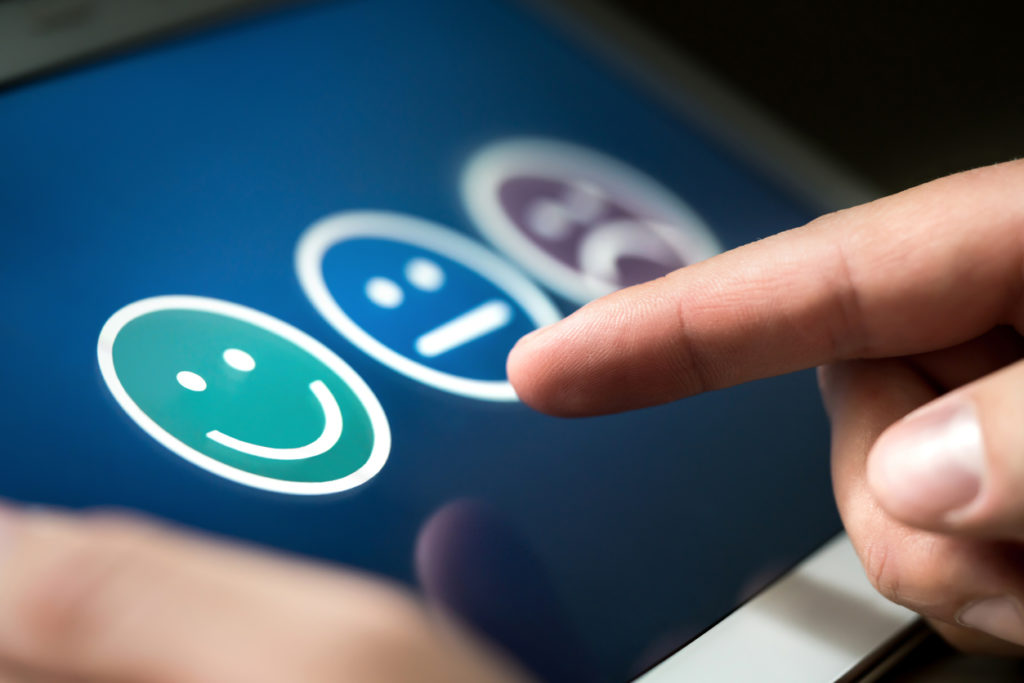“Are libraries neutral?” This is the question that was posed at the ALA Midwinter President’s Program in Denver a few years ago. A diverse panel of librarians was asked to take turns responding to that question, with results that were sometimes very interesting and sometimes fairly predictable.
There was a very big problem, though, and it lay in the organizing question itself. One can’t really answer it meaningfully without first asking a clarifying question: “neutral” about what? The lack of clarity on this point led to what looked on the surface like a wide variety of opinions on the issue of whether or not libraries can or should be “neutral,” whereas in fact it was—to a very real extent—an example of different people responding to different questions, all of them inferred from the organizing question “Are libraries neutral?”

For example, James LaRue responded as if the question were “Do libraries discriminate on the basis of belief, speech, or background when it comes to services, access to facilities, and collections?” He answered no, saying that “neutrality is about the refusal to deny people access to a shared resource just because we don’t like the way they think.” I would summarize LaRue’s view as “Libraries are neutral in that we treat all patrons equally regardless of their beliefs; this is a core principle of intellectual freedom.” (Of course, neutrality may be “about” access to library resources and services, but it is also about other things, as we shall see.)
On the other hand, Chris Bourg (director of libraries, Massachusetts Institute of Technology) responded as if the question were “Can the library be considered neutral when many of its characteristics are the result of racist and oppressive systems, and when it takes a specific stance on issues like the importance of offering multiple points of view?” Her answer was no; in these important senses libraries are not neutral.
Em Claire Knowles (assistant dean for student and alumni affairs, Simmons School of Library and Information Science) responded to the question by characterizing “neutrality” as “a goal that must be continually sought, an aspiration that must be regularly renewed and reimagined so as to remain relevant to the institution and to the community it serves.” Knowles believes “neutrality” is reflected in the library’s choice to pursue a “clearly stated, unbiased, and balanced collection policy” and to provide “safe, responsible places for diverging opinions” — while at the same time not pretending that librarians “do not have social goals” or should be “indifferent to injustice.” Knowles, it seems to me, sees “neutrality” primarily as a lack of bias, and as an ideal to which libraries should aspire in order to ensure that they serve their diverse communities well and live up to their expressed values.
In other words, all on this panel were asked the same question, but all answered very different ones.
In some ways neutrality in the library is clearly a very bad idea — and yet in some important ways, it’s absolutely essential.
This isn’t a technical semantic point, because in some ways neutrality in the library is clearly a very bad idea — and yet in some important ways, it’s absolutely essential. And since the issue of libraries and neutrality keeps coming up, it seems like a good idea to try to parse it a bit more carefully. In what senses or contexts is neutrality essential, and in which is it specious or ill-advised?
For example: if the question is “Do libraries take a neutral stance on the issue of literacy?”, then the answer is clearly no. Libraries actively promote literacy, and treat illiteracy as a problem to be solved. If the question is “Do libraries take a neutral stance on the issue of racial diversity?”, then again the answer is clearly no—the American Library Association’s Core Values Statement is admirably clear and forceful on this point, and I don’t think I know a single librarian who would disagree with it. The same can be said for questions about equity of access, social responsibility, the value of education, and the importance of privacy. On all of these issues it can confidently be said that libraries take a non-neutral stance, in that we stand in support of these things. In the context of these and other broad and very important questions, the library is not – and arguably must not be – neutral.
However, there are other important contexts for the concept of neutrality. There are many questions and issues on which it would clearly be problematic for any library to abandon neutrality by demonstrating bias toward or against a specific position.
For example, consider political candidates. Should the library support one over another? The easy answer to that question is “of course not; that would likely be illegal in cases where the library is a public institution, and it would endanger the nonprofit status of private libraries.” Fair enough, but let’s bear in mind that the library doesn’t have to explicitly and formally endorse a candidate in order to adopt a position of bias. This can be done more informally (even sneakily) by, for example, adding to the collection books that are supportive of one candidate and declining to add books that are critical — or by loaning meeting space to groups that support one candidate while excluding groups that support the other. Or it can be done more insidiously still, for example if library leadership sends a post-election message to the staff expressing solidarity with those who are celebrating (or lamenting) the election’s outcome. (The very clear message in this case being: “If you feel differently than the library’s leadership does about how the election turned out, you do not belong in this library.”) Not only on candidates but also on many specific political and social issues generally, it seems clear that in order to serve all of its patrons equitably and to provide a safe and supportive environment for all of its staff, the library must maintain a neutral stance.
So maybe the solution to this conundrum is easy after all: when it comes to big, broad issues such as those outlined in the ALA Code of Ethics, libraries should take a clear position; when it comes to narrower, more specific political and social issues, libraries take a stance of neutrality so as to make room for a variety of views and perspectives and provide equal support to all members of their communities.
But hang on: is it really that simple? Is it possible that there are at least some specific social issues on which the library definitely should take an explicit and non-neutral position? This is where things get tough. For example, virtually all of us who work in libraries would, I’m sure, agree that racism is bad, and should be opposed. Shouldn’t the library take a firm position against racism? And how about child abuse, or sexism? How can the library fail to take a stance against these things?
Few, if any, would say “racism is a good thing.” But reasonable people might disagree as to whether a particular book is racist.
There’s a problem here, though, and that is that the population any library serves will not uniformly agree on how things like racism, sexism, and child abuse should be defined—and depending on how they are defined, there may be a variety of differing viewpoints held by reasonable and well-informed people. Few, if any, would say “racism is a good thing.” But reasonable people might disagree as to whether a particular book or group is racist. So while the library might wisely avoid collecting books that celebrate racism as such, it might also reasonably collect books that some members of its community consider to be examples of racism. (And depending on its mission, it might actively collect racist books for educational purposes.) On the issue of child abuse, a library might reasonably collect books that argue against any kind of corporal punishment for children and shelve them alongside books that argue in favor of corporal punishment — not because the library is neutral on the issue of child abuse, but because it declines to take an organizational stance on the question of whether corporal punishment necessarily constitutes child abuse.
Do these issues seem nit-picky and legalistic? If so, then I would suggest that we’re not taking our responsibility as librarians seriously enough. Not all important questions are simple, and “it’s complicated” is not a legitimate excuse for failing to deal with them — not if we are (and want to be regarded as) professionals. These are, in fact, the very kinds of questions that will be considered by people who want to have an intellectually honest discussion of neutrality and bias in the library.
Why does this matter? Because the fact that there are some ways in which the library is not and must not be neutral should not give cover to practices or programs that create bias in areas where the library is and must be neutral. And if the “libraries are not neutral” position is given a halo of righteousness, that of course implies that those who support important aspects of library neutrality are unrighteous: defenders of the status quo, agents of oppression, etc.
The fact that there are some ways in which the library is not and must not be neutral should not give cover to practices or programs that create bias in areas where the library is and must be neutral.
Issues around neutrality and bias matter because they go directly to the core values of librarianship, and to the library’s ability to serve its community. If we actually believe that all members of our community have an equal claim on the library and its resources — if, in the words of the ALA’s official Interpretation of the Library Bill of Rights, we believe that “the essence of equitable library services provides for free access to all expressions of ideas through which any and all sides of a question, cause, or movement may be explored” — then this necessarily implies that we, as librarians, do not believe in putting our own ideological thumbs on the scale of social discourse. Or, as that same Interpretation more pithily puts it, “librarians cannot justly permit their own preferences to limit their degree of tolerance in collection development.” Surely if this is true in the sphere of collection development, it must be equally true when it comes to patron service, use of library spaces, and other aspects of library service and programming.
The reality, in other words, is neither that the library is “never neutral” nor that it is “always neutral.” Our world is much more complicated than that. It would be more accurate to say that “the library sometimes and in some contexts must not be neutral, and in others absolutely must be neutral — and sometimes, it’s hard to say what we mean by ‘neutral’ and sometimes it’s hard to say whether ‘neutrality’ is the right or the wrong stance.”
That makes a terrible bumper sticker, I know. But it makes a much better and more equitable library.
(For a deeper and more rigorous treatment of this issue, I recommend John Wenzler’s essay “Neutrality and Its Discontents: An Essay on the Ethics of Librarianship,” in the January 2019 issue of portal: Libraries and the Academy. Subscription is required, but a preprint version is available here.)
Discussion
17 Thoughts on "Libraries and the Contested Terrain of “Neutrality”"
The question about neutrality (libraries’ and library associations, including ALA) has also come up in the context of responses to the events in Ukraine- wording of statements, blocking of national memberships in IFLA, etc…
A tangental issue that correlates to this question is tacitly brought up by the “Big Read” often promoted by libraries and librarians. Who chooses what is available to read? THAT in itself make clear neutrality is a fiction. We professional librarians “collection develop.” And our professional training suggest we lean one way or another. The goal SHOULD be neutrality and we should strive for that Shangri-La constantly but we MUST keep in mind it is a fiction not reality. Again the best we can do is strive for it.
Let’s be careful, though, to avoid jumping from “it’s not possible to be perfectly neutral in everything we do” to “neutrality is a fiction.” This issue is much more complicated than that. For example: when we develop collections, we make choices — we exclude some book and include others. Clearly by doing so we’re exercising some kind of discrimination, which means we’re not being “neutral” in our selection of books. But we can (and absolutely should) adopt a position of neutrality in some important ways and on some important issues: for example, it would be irresponsible for a library to collect only books that support one political candidate and that attack his or her rival. To defend such an approach to collection development on the basis that “libraries are never neutral and neutrality is a fiction anyway” would be both unprofessional and unethical. Dealing with this issue in all its complexity is part of our job as professional librarians.
Thank you very much for this! It’s very timely for us, as we’re having a debate right now in my library about the concept of intellectual freedom and our support (or not) for statements like the Canadian CFLA one on intellectual freedom.
The most important point you make as relates to our debate is:
“Because the fact that there are some ways in which the library is not and must not be neutral should not give cover to practices or programs that create bias in areas where the library is and must be neutral.” This is the heart of the debate, as some of our younger librarians think that the idea of the library as a “safe space” precludes us from giving any kind of neutral support to, for instance, a speaker such as the controversial one at Toronto Public Library in 2019 who argued that some aspects of the transgender movement were starting to impinge on women’s rights.
The issue of neutrality in libraries, then has to be bifurcated into two areas that might result in separate conclusions: collections and “programming” (including meeting spaces for public bookings). I think the vast majority of academic librarians support neutrality in collections (with the understanding that limited budgets means there is always some judgment about worthiness involved), but the programming side is where the arguments get really vicious.
Here are some useful links from Canada:
CFLA Statement on Intellectual Freedom:
https://cfla-fcab.ca/en/guidelines-and-position-papers/statement-on-intellectual-freedom-and-libraries/
Intellectual Freedom: Position on Protest and Disagreement related to Collections, Programs and Speakers in Libraries. An Interpretation of the Canadian Federation of Library Associations’ Statement on Intellectual Freedom and Libraries
http://cfla-fcab.ca/wp-content/uploads/2022/01/2022-01-18-Position-on-Protest-and-Disagreement-EN.docx.pdf
Article about the Toronto speaker conflict:
https://globalnews.ca/news/6039135/toronto-public-library-meghan-murphy/
Thanks Rick. In your experience, where are the checks and balances in this system? That is, for example, in the university environment, are libraries the top dogs or do provosts (or some other entity) ultimately have some say in what libraries do and how?
And on a related note, how do you view the proper role of libraries in responding to the needs of the research communities they serve? Should libraries be ideologically neutral and respond to these needs without necessarily advocating massive reform? Or should they in fact create mandates that not only address their own budget and demand issues but also change research publishing practices? Or is there some other approach?
The specific example I’m driving at is open access, of course. As you well know, there are still many haloes of righteousness being worn in the OA reform space, where commercial publishers are the sworn enemies, and all who don’t support “acceptable” OA solutions (like APCs, transformative agreements, CC-BY, etc.) must be agents of oppression. Libraries have large responsibilities in this reform environment, but they also have large thumbs. In a massively multi-stakeholder space like research publishing, what is the most appropriate thumb print for libraries in helping develop the right solutions?
Hi, Glenn —
In your experience, where are the checks and balances in this system?
Eh, there really aren’t any. There are professional guidelines (I linked to them in my piece), but there doesn’t tend to be anything structural in place to ensure that libraries find the right balance on this issue. Librarians are professionals, and we’re expected to exercise professional judgment.
[H]ow do you view the proper role of libraries in responding to the needs of the research communities they serve? Should libraries be ideologically neutral and respond to these needs without necessarily advocating massive reform?
I don’t see any reason for librarians to refrain from advocating for reform when they feel reform is needed. What form their advocacy takes will vary from situation to situation, of course. That said, I’ve written elsewhere (in a couple of places) about what I see as the strategic dangers of getting out of alignment with the mission of one’s host institution. And I do believe that libraries and librarians have a professional and ethical duty to support their institutions’ missions.
In a massively multi-stakeholder space like research publishing, what is the most appropriate thumb print for libraries in helping develop the right solutions?
I don’t think there’s a single, universally correct answer to that question. But I do think the answer for any individual library should be informed significantly by the mission and priorities of the institution that created and funds it.
Coincidentally there’s a discussion thread right now on a Canadian librarians list about how collections policy changes (which would certainly include statements about content selection and neutrality) are decided – some institutions, it’s entirely internal to the library team, others have to get their policy approved by their institutional Senate or other stakeholders outside of the library org chart.
This is a really helpful piece, Rick– I encounter that statement about neutrality almost entirely in terms of how libraries have historically collected (made discoverable and etc etc) a narrow set of materials, privileging men, white people, heteronormativity, histories of European “discovery,” and etc. I really appreciate how you have set out the multiple places and ways that libraries can or not exercise neutrality or at least work against bias and when they might stake out explicitly non-neutral positions and why. Made me think, prompted some scribbling of my own!
Thanks, Karin — I’m so glad to hear that you found it useful.
“If you are neutral in situations of injustice, you have chosen the side of the oppressor.”
Desmond Tutu
South African Anglican clergyman
The problem, of course (as Desmond Tutu knew better than most), is that being biased can create injustice as well. That’s why this is a complex issue.
Thank you for an excellent article! I think that it is especially hard for libraries as an institution to stay neutral when the vast majority of librarians all come from the same political perspective. It becomes easy to see our positions as the only possibly correct positions. It will take extra diligence to include alternate positions and not to feel justified in excluding them because we see them as “misinformation”.
Good point, Janet, thanks. It can be tempting to assume that the line between “information” and “misinformation” (or even “disinformation”) is very clear and bold, but sometimes it can actually be quite fuzzy — and all of us have ideological inclinations that can make it harder for us to see that line clearly.
While I agree about librarians tending to come from one arm of the partisan spectrum, I am increasingly finding that that’s mediated by generational differences. After decades of thinking of myself as the “junior” librarian, I suddenly find myself the oldest. And the much-younger librarians, as a whole, seem to represent an entirely different professional ethic than the one I was brought into the profession with. They seem much more willing to throw neutrality away to keep the library what they think is a “safe space” for “marginalized” groups than my generation. I don’t know how to argue ethics with someone starting from such different ground. If you think “intellectual freedom” (IF) is a value far subordinate to “everyone should feel welcome in the library”, as I am hearing, I am so flabbergasted I just don’t know what to say in response, beyond “I disagree”. I suppose it would help if anyone has a poll of academic librarians whose results say overwhelmingly that IF is the greater value.
It’s going to be really interesting to see when, whether, and to what extent the ALA’s Official Interpretation of the Library Bill of Rights is going to change as a new generation moves into leadership. I have to wonder, in particular, how long language like this is going to survive:
“Books and other library resources should be provided for the interest, information, and enlightenment of all people of the community the library serves. Materials should not be excluded because of the origin, background, or views of those contributing to their creation.” A diverse collection should contain content by and about a wide array of people and cultures to authentically reflect a variety of ideas, information, stories, and experiences.
Not to mention:
The Library Bill of Rights specifically states that “all people” and “all points of view” should be included in library materials and information. There are no limiting qualifers for viewpoint, origin, or politics.



